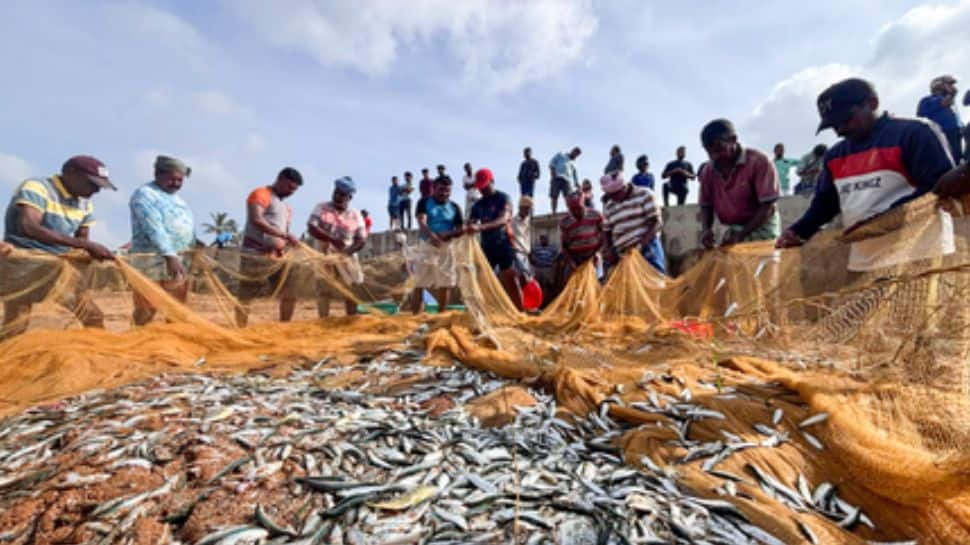India-UK Trade Deal Set to Double Seafood Exports
The recently signed India-UK Comprehensive Economic and Trade Agreement (CETA) is expected to significantly boost India’s seafood exports, potentially doubling shipments to the UK market in the near future, according to the Marine Products Export Development Authority (MPEDA).
Key Highlights
- Zero-duty access for 99% of Indian seafood products to UK market
- Potential to double current $104 million export value to UK
- Major beneficiaries: Vannamei shrimp, frozen squid, lobsters, and black tiger shrimp
- Focus on value addition and workforce upskilling crucial for growth
Agreement Details and Market Access
The CETA pact, finalized in July this year, provides zero-duty access to 99 percent of tariff lines, making Indian seafood more competitive in the UK market. Key export categories set to benefit include Vannamei shrimp, frozen squid, lobsters, frozen pomfret, and black tiger shrimp.
MPEDA chairman D.V. Swamy, during a two-day interaction with exporters, emphasized the need for strategic focus on value addition and workforce development to maximize benefits from the trade agreement.
Current Export Performance
India’s marine product exports reached $7.45 billion in 2024-25, with shrimp, fish, and cuttlefish comprising the majority of shipments. UK-bound exports specifically totaled 16,082 metric tons valued at $104.43 million.
Frozen shrimp dominated UK shipments, accounting for 77 percent of total exports, followed by frozen fish at eight percent.
Industry Collaboration and Development
The stakeholder meetings brought together officials from the Department of Commerce, Export Inspection Agency, and Seafood Exporters Association of India, along with over 90 exporters from Tamil Nadu, Andhra Pradesh, and Odisha.
Presentations highlighted both the CETA features and potential for Marine Aquapark SEZ development in Tamil Nadu, indicating comprehensive planning for sector growth.
Future Outlook and Requirements
Swamy stressed that realizing the export potential will require coordinated efforts to enhance product quality, scale up processing capabilities, and train skilled labor to meet global demand.
With strategic adaptation and investment, Indian seafood exporters can not only increase UK market share but also position India as a competitive, high-value supplier in international seafood trade, driving economic growth and employment generation across the sector.




